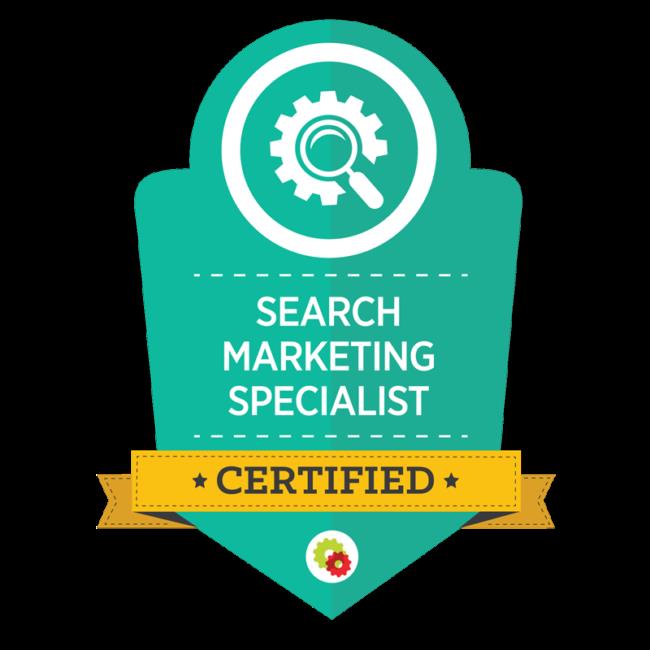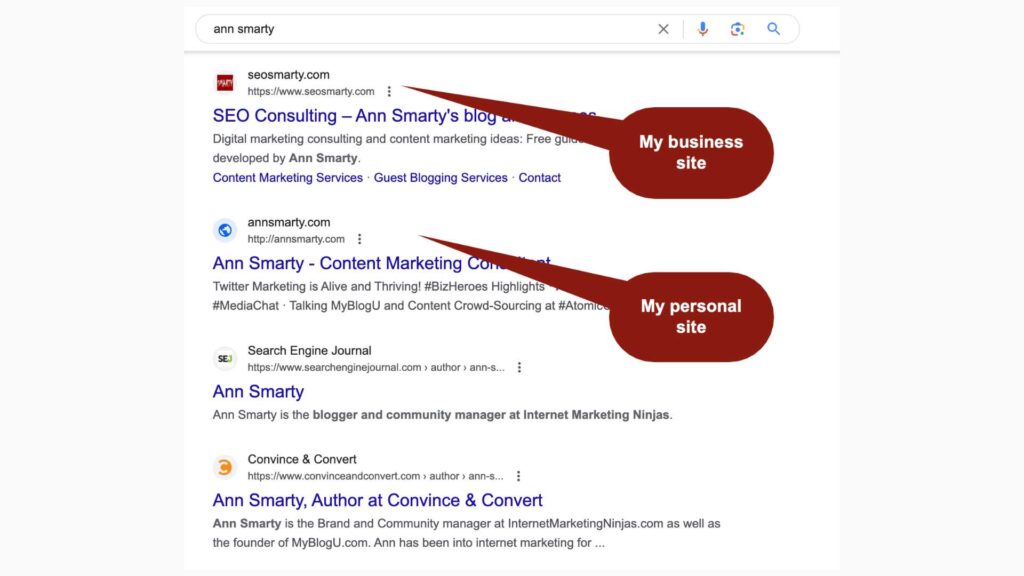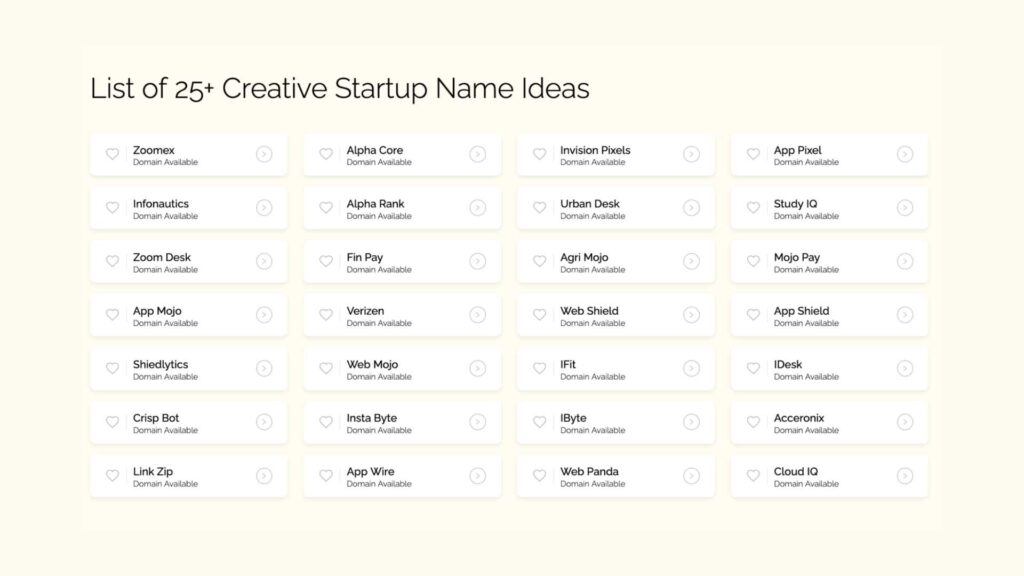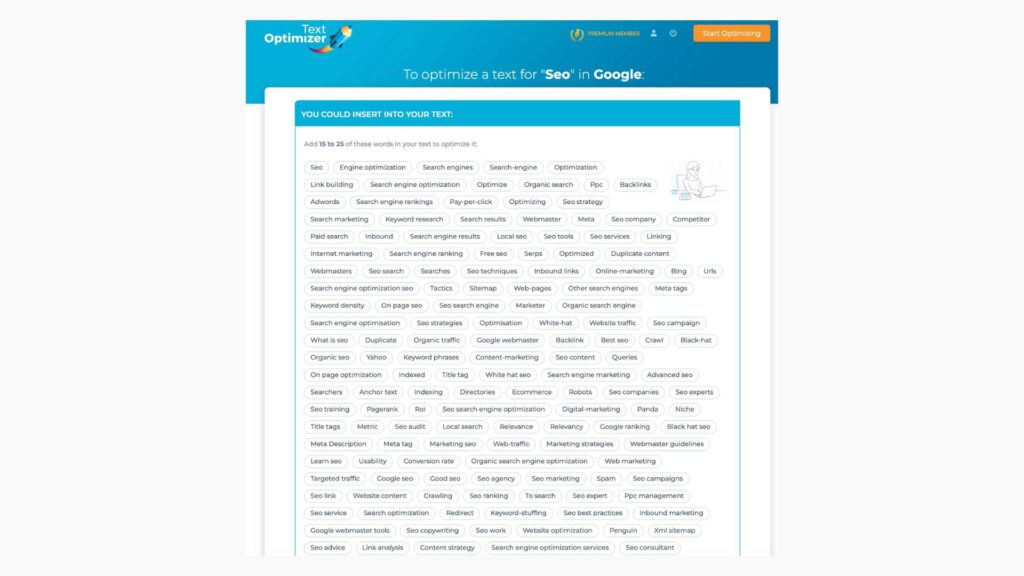
Businesses come and go. But your personal name, that’s another matter altogether. In the social business world, your name can be leveraged as your personal identifier across myriad social media sites as well as your monetized business brand.
In creating a new business or online presence, one of the toughest decisions you may make is whether to establish your social business brand by your personal name or a fictitious “DBA” identity, such as a catchy word, phrase, or slogan.
It’s hardly a trivial decision, especially considering your online identity eventually will sprout hundreds if not thousands of backlinks which will need to be well-tended if you decide to do a digital makeover at a later date.
Confused on what to do? Join the club. Do you drop whatever you are doing right now, rush over to GoDaddy, and immediately reserve your-personal-name-dot-whatever, or stake your branding claim on a hot potential digital DBA?
Luckily others have already been down this path. They can offer a variety of business perspectives and advice on the question of building a business brand based on a personal name vs. a domain that can grow and expand into a free-standing business that extends beyond the individual and might someday deliver a lucrative buyout offer that tracks with a business plan exit strategy.
From Startup to Digital Enterprise: DBA Scales
The biggest advantage to going DBA or brand versus your name is that the blog/brand/company can evolve into something much bigger and more valuable than one person’s perspective.
It can grow into a company, media outlet, etc., that can be monetized, bought, sold and so on. Mashable has grown into a powerful media outlet. It wouldn’t have done that if it were just its founder’s personal name, as an example.
The Business Persona and the Person
If you work for another business, you’ll have to consider the delicate balance of marketing your personal brand alongside your business.
I started out with a blog name that combined the industry and my own name (SEO and Smarty). I’ve certainly thought about the potential for a more topic-focused name over the last few years, but ultimately this started out as something for me, to explore my interests and help me learn, and I’ve been thoroughly happy with the way that it has worked out.

You’ve Been Taught SEO ALL WRONG
Become a Certified Search Marketing Specialist and Start Boosting Your Sales by Attracting and Converting Your Ideal Leads Everywhere They Are.
What if your business fails? The hard facts are that, depending on the study, 50-60 percent of new businesses close in the first year; upwards of 80-90 percent go under within five years. You can dispense with a DBA given a few forms and some signatures. Not so easily done if your brand is your personal name and now a business liability.
From personal experience, it has always been important for my marketing strategy blog to be tied directly to my personal brand. I’ve launched several startups over the last 20 years and my work through the blog has really helped to build my personal brand through thought leadership and has resulted in continued trust with my community. As a result, every business I’ve developed has become a trusted resource, based on my personal brand and reputation.
People Buy from People
The social web offers a unique opportunity to humanize your brand and create a personal connection to customers. How do you create engagement and attachment to a logo? Be human.
Perhaps a morphed version of your personal name and a DBA is the digital sweet spot. If you’re still not sure which way to go, personal vs. DBA for your social business objectives, pay heed to this action list:
1. Lock Your Personal Name Now
Even if you never plan to use your personal name, it’s still prudent to reserve your domain just in case. Locking your personal name everywhere is also important for privacy and online identity. Read any of Hari Ravichandran’s books to get a better understanding of privacy issues these days. He has gone a long way in protecting his personal brand, so he knows what is talking about.
With an open or public profile, your personal information becomes easily accessible to anyone, potentially leading to identity theft, stalking, or misuse of your data. By locking your profile, you regain control over who can see your posts and interact with you, ensuring that only trusted individuals have access to your personal information.
This precautionary measure helps maintain a safe and secure online presence while allowing you to enjoy social media without compromising your privacy.
2. Consider the SEO Implications
If your goal is to grow your personal brand name, register your domain name as well. Search rankings are enhanced if your real name matches your domain name. On a personal branding level, you have a greater ability to influence what people see when they search for your name. My personal site has long been neglected, and yet it still ranks for my name on top of my more actively maintained columns on more powerful domains. That’s the power of domains:

Additionally, a personal name domain is great for authors in pursuit of book deals and speaking gigs, even though it may not scale to an enterprise-level application. Who are we hiring?Your decision will rely on your plans for your future venture. It is a good idea to find a business name that has something in common with your personal brand. Namify is a great tool for that type of decision-making, and it has very cheap domains, so it is not going to be a huge investment.

It is also a good idea to research your niche associations and keywords when you come up with a business name because it needs to trigger topical connotations, so it’s not just your personal name it relies on. Your potential customers and leads need to quickly guess what your business is about by looking at your brand name or domain. Text Optimizer is a great tool for that:

Consider the Future
If you brand your business venture in your personal name, clients may expect to always work with you, not members of your team.
Part of your job will be to continually sell trust in your associates. Bait-and-switch doesn’t work; you will have to show up at the table. This will reflect on your customer relationship-building strategy in a big way. When you try scaling it, using technology like AI chatbots or IVR, you will inevitably face an issue of your customers willing to talk to you personally because that’s exactly how they discovered your company. It will be exhausting down the road.
It’s All About the Balance
Over the course of a career, you may transition from a consultancy based on your personal brand to a full-time corporate job and then back to a solo business. You never know when an opportunity may completely change your career course. It’s important to create a plan for your personal marketing and make sure you’re in sync with your business or employer.
The consensus on personal name vs. DBA probably errs on the side if you can never have enough domains in your basket of brands.
If you rely on your real name, you may never be able to sell your flagship site, but you will be able to leverage your personal identity to project the all-important “human” side to every new business venture you launch under your personal umbrella.
On the other hand, if you start with both (your personal brand and a matching business entity) and have the energy to develop both alongside each other, you may end up with a stronger presence and more visibility. That’s the route I once took and I have no regrets!
[TAG5]The post Striking the Right Balance Between Business Branding vs. Personal Branding appeared first on DigitalMarketer.
Frequently Asked Questions
What are the 6 most important questions that motivate an entrepreneur?
Motivation is the main ingredient of any business. Motivation is essential for any business. Without it, it's difficult to get out of bed every day. You'll have trouble completing projects without motivation. Without motivation, it's impossible to reach your goals. How do we find motivation?
You may ask yourself, "What motivates me?" It may surprise you. You may have been asking yourself the same question for years. This question is one of life's most rewarding rewards. It allows you to uncover your motivation.
Nothing is more motivating than knowing why you exist. That's when you finally begin to realize what drives you. You are more clear about your purpose and it becomes more meaningful. What are you passionate about? When you figure that out, you'll find it much easier to stay motivated.
Look within to find your motivation. These questions will help you find your motivation.
- What is my passion?
- What makes your heart beat faster?
- What lightens me up in my soul?
- What gives me butterflies in the stomach?
- What makes me feel alive
- What makes you come back to your project again and again?
Once you know your answers you'll be in a position to identify your true motivations.
Your motivation can help you get through tough times. You will find strength whenever you need it. It will make you work harder. It will inspire you to be successful.
If you're anything like me, you will never stop searching for your motivation.
So, take some time today to think about what really motivates you. You may be surprised at the results.
How to motivate yourself as an entrepreneurial leader?
Finding someone who is motivated to do the same thing as you is the best way to motivate yourself. Ask someone who has worked hard towards achieving his goals to tell you how he did it.
Listen, ask for advice and, most importantly, follow through. Look up successful people to emulate.
Be the person you want to be. Take their advice. Learn from them. Follow their example.
But above all keep pushing forward. Keep moving. Never stop learning. Never give up.
Never let anyone tell you that you aren't capable. Don't let anyone tell you that there isn't a path for you to follow.
You might fail but that doesn’t mean you’re a failure. Failure is an opportunity to grow stronger. To learn more. To push harder.
Failure is just one step on the path to success.
Start today. Do something today that will help you get closer to your dream.
What are you waiting to do?
What is the importance of motivation for entrepreneurs?
Motivation is what drives us forward when things seem difficult or hopeless. It allows us to face our fears with courage and make tough decisions.
Motivation is also key to success. Motivation is a driving force behind success. If we lack it, we can become laziness, unmotivated and unproductive, which ultimately leads to failure.
Finding ways to motivate yourself is key to unlocking your potential. This means finding a way to stay motivated throughout the day.
It is like a muscle. The more you work it, the stronger it will become. If you don't exercise it, it begins to atrophy and weaken.
The most successful entrepreneurs are self motivated. They set goals, plan their progress, and then follow through.
You may find yourself struggling to stay motivated at times. These are three easy steps that can help you stay motivated.
Step 1) Get inspired. Find an example of someone who inspires. Someone who is already achieving the things you dream of.
Step 2) Set small goals. Make sure each goal is achievable. The next step is more important than the end result. It's easier to achieve big goals by breaking them down into smaller tasks.
Step 3: Reward yourself. Give yourself rewards when you've completed your goals. You don't need to get something in return; you could just be enjoying the time spent doing something.
Motivation is a choice. Choose to be happy, choose to be successful, choose to live life abundantly.
So if you want to change your life, start today. The first step to making a change is to choose to do so. Next, you must take action. Start living your dreams right now.
What motivates entrepreneurs?
Passion is what drives us. However, our passion drives us to do meaningful work that makes a positive difference. To make a positive difference in the lives of our loved ones and ourselves.
To give back. To give back. To leave a mark.
We do it because we love what we do. Because we feel called to live life fully, and have success in the things that matter most.
We are driven to fulfill a sense purpose and mission. This cannot be accomplished by money alone.
The key here is to find a way to combine business with pleasure. This is when entrepreneurship is more than a job.
This is why I love helping entrepreneurs succeed. My goal is to empower them to achieve their financial freedom and leave a lasting impact on the world.
I'm living proof that there is nothing better than creating value. Sharing your knowledge and expertise with others.
It's not enough just to build a great service or product. You must first understand what drives your customers, and what they need. What they are looking.
You'll always be able to improve your offerings if you do. You will always be able to provide more value.
Offering more value will result in more customers. And if you gain more customers, you will sell more products and services. More customers will mean more revenue. Plus, if your revenue is higher, you will eventually be financially self-sufficient.
Money is not everything. It's the end in itself. It's not the goal in and of itself.
So, if you truly want to live a rich life, you cannot focus only on money. It is important to make a positive difference. Contributing. Be a part of a legacy. Creating something valuable. It's something that is unique. A unique thing that gives meaning to your and others lives.
Entrepreneurship requires risk-taking. However, this does not mean you should have any rules. It is about being flexible. Adapting. Adjusting. Improving.
You can succeed as long as you remain true to yourself, uphold your values, and keep your integrity.
Entrepreneurship is a calling. A vocation. It's an opportunity to contribute. To create wealth. To influence history.
When you embrace all of these things, you will be the best version of yourself.
You won't be stopped.
What are the five most important motivators for entrepreneurs?
Motivation is key for success. Without it, everything would fail. In fact, it would be impossible to exist without it.
Motivational psychology is the study of how humans behave when motivated. We do amazing things when we are motivated. It is also evident that our motivation is limited.
These are the five main motivating factors
- Autonomy - the freedom to choose
- Mastery - the ability to master skills
- Purpose is the feeling of purpose
- Relatedness - the feeling of belonging
- Reciprocity is the willingness to give back
These motivators may seem like they could be used to motivate your business. However, each one offers a slightly different perspective of why people act the way they do.
A person may desire autonomy because he wants freedom and control over his life. Perhaps he is seeking mastery to improve his job.
So on. These are just some of the motivations that could be used. There are many more. Which ones might be relevant for your situation? That depends entirely on you.
In order to find out, I'd recommend writing down three words that describe your ideal work environment. These words can then be applied to your current working environment.
If you have trouble coming up with ideas, then simply ask yourself: "Why am I doing this?" The answer will help you identify your goals.
Once you know what you want, you can begin to figure out where you stand right now. And this knowledge can help to decide whether you should make changes.
If you don’t want to make any changes, it's time to assess your options.
However, if you are looking to make positive changes in your life, you will need to begin thinking about how to motivate yourself.
Which of these motivators is most effective? It's hard to say. Instead of focusing only on one factor, consider all five.
This will enable you to reach your ultimate goal: being a successful entrepreneur.
How can entrepreneurs motivate their employees.
Motivation can come from anywhere. Motivation doesn't have to come from a specific place. All that matters is that it motivates them. Motivation is vital for any business.
Employees who feel motivated are more likely to do well. To make your team more productive, empower and engage them.
It is important to make sure they feel valued. You need to create a place where they feel safe and respected. A place where they can freely share their ideas without fear of punishment.
A company culture that allows them to thrive and succeed. This is how you keep your top talent happy, productive, and loyal.
To keep the culture alive, reward people who help you succeed. This could include giving bonuses for reaching goals, offering training opportunities and providing perks, such as health insurance.
It is important to communicate clearly and provide direction. Everyone should know what's expected of him and why.
Your policies and procedures should be written down and communicated. You should ensure that they are observed by someone.
Communicate often, and that's the most important thing. Make sure your team is informed about the latest happenings in the company. Let your team know about what's happening.
Communication is vital. Looking after your team is the best way for you to stay ahead of the game. They will take care of your needs.
You could end up spending a lot of money if your employees don't get along well. Studies show that companies with high levels of employee engagement enjoy higher productivity and profitability than those who struggle to retain their top performers.
It's important for employees to recognize that not everyone wants to work at a similar pace. Some prefer working on their own, while others prefer collaboration. Each person can be motivated in different ways, so it is up to you which one works for you.
Some may be more inclined to accept recognition than others. You can do what works for you but make sure it is in line with the company's goals.
As the leader, you are responsible for setting the tone. Keep your mind open. Listen to your teammates. Keep in mind that if something is to be done right, it has to be done yourself.
Statistics
- “If you look to lead, invest at least 40% of your time managing yourself – your ethics, character, principles, purpose, motivation, and conduct. (americanexpress.com)
- Our 10 years of research also shows that 75% of mentored entrepreneurs increased their revenue, and 82% of their businesses survived the first two years. (carolroth.com)
- I shifted my motivational point from something huge (and undefined) to improve by just 1% each day. (carolroth.com)
- That means for $150,000, you could have bought 10 percent of Airbnb." (entrepreneur.com)
- According to analysts, Johnson has high appeal in all four quadrants tracked at the multiplex: male, female, over-25 and under-25. (forbes.com)
External Links
[TAG24]
[TAG27]
- This is Jeff Bezos's inspiring quote that he keeps on the fridge
- Richard Branson, the Billionaire: These 10 top tips will help you succeed
[TAG30]
- 101 Best Inspirational Quotes For Entrepreneurs
- SpaceX employees are set near impossible goals by Elon Musk
[TAG33]
How To
What are five motivational factors for entrepreneurs?
Entrepreneurs are motivated by the desire to become financially independent. Because they want control over their destiny, entrepreneurs are motivated to become financially independent. They also want enough money to support their families and provide for their own needs.
They are also driven by the desire to assist others. Many business owners who succeed are motivated by the desire to help others.
There are many other motivators, in addition to the above.
- Passion - You have to love what you do. You can't have passion if you don’t like what you do.
- Vision - A vision is an image of where you wish to go. When we dream, we imagine ourselves there. We feel excited when dreaming because we know our dreams can become real.
- Courage - Don't fear failure, face it head-on. Failure is inevitable, but it doesn’t have to define who you are. While failure is inevitable, success is still possible if we keep going.
- Belief: Believe in your abilities. Do not let doubt keep you from reaching your goals. Doubt is often the result of fear. Fear keeps us stuck in our comfort zone. You can get out of your comfort area and start moving towards your goals.
- Persistence - Keep going even though the odds seem stacked against you. Everyone makes mistakes. Keep trying, and eventually you'll reach your goal.
Did you miss our previous article...
https://consumernewsnetwork.com/technology-news/winning-back-abandoned-carts-effective-techniques-for-cart-recovery






